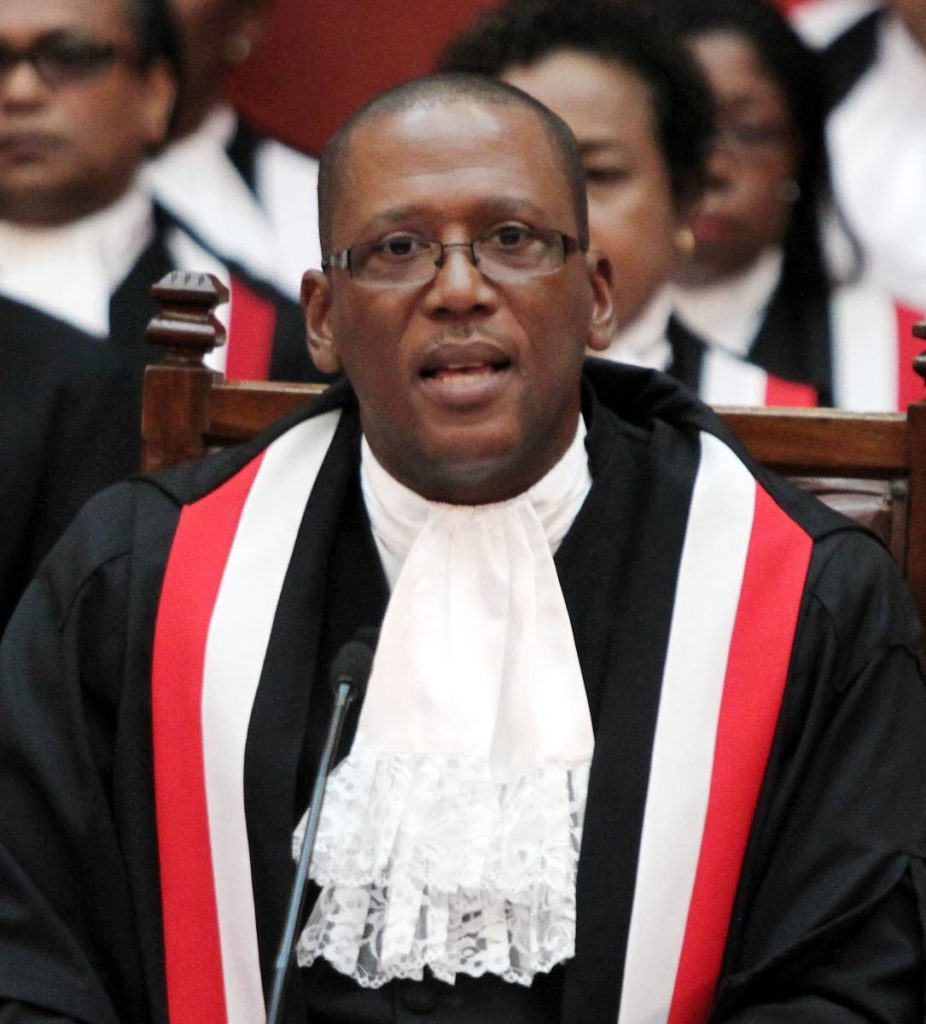Judges' sabbatical goes on trial in July

A last-minute substitution of defendant has prevented an early collapse of the Attorney General’s interpretation summons which seeks to have the court determine whether judges are entitled to sabbatical leave.
The Judicial and Legal Services Commission (JLSC) had been named as the single defendant in the application being heard by Justice James Aboud, however attorneys for the AG yesterday sought to have the body substituted by the Law Association (LATT).
There were no objections to the change, after lead counsel for the AG, retired judge of the Caribbean Court of Justice, Rolston Nelson, SC, explained that the JLSC was a disciplinary body that had nothing to do with the terms and conditions of judges’ salaries and remuneration.
The Law Association’s president, Douglas Mendes, SC, said the LATT was sympathetic to the State’s position and was mindful of its statutory functions to support an independent Bench so it was amenable to being made a defendant so that the matter can go forward.
Mendes, however, had one stipulation that no order for costs be made against the association at the end of the matter or on appeal.
Nelson accepted the condition of the LATT, saying it was not a controversial type of action and it was not likely that the AG will seek costs from the association.
It was also agreed that the judges of the Supreme Court, who are represented by a team of attorneys led by Russell Martineau, SC, will be an interested party to the proceedings, and will be allowed to make submissions on the issue of sabbatical leave for judges.
Aboud, who again put on record that he was not a part of the internal committee of judges which considered a report of the Salaries Review Commission (SRC) for sabbatical for judges nor was he interested in taking a sabbatical, set short time-lines for the attorneys to follow ahead of the trial date on July 31.
He said he intends to give a decision before the end of the year, considering his already heavy case-load.
Nelson agreed that it was an issue affecting judges, and leaned for an earlier decision.
“I don’t see why it cannot be determined in two or three weeks. We would certainly want it to be decide by the end of this term.”
AG Faris Al-Rawi was instructed by the Prime Minister to take relevant steps to clarify whether there exists any such leave for members of the judiciary after Chief Justice Ivor Archie had applied for sabbatical leave before changing it to vacation leave after controversy stirred over whether he in fact qualified to take sabbatical.
Archie left on a six-week vacation on March 20, the day after he swore in President Paula-Mae Weekes, who incidentally had presided over an internal committee in the Judiciary to give effect to a recommendation of the Salaries Review Commission (SRC) for sabbatical leave for judges. Weekes had also applied for such leave but was denied.
In November, Archie informed then President Anthony Carmona of his plan to go on a sabbatical to, “rest, reflect and study,” on a judicial fellowship in Washington, DC. He was expected to leave in February, but his plans were thwarted when the government took the position that Archie was not entitled to any sabbatical leave under terms of the SRC’s 98th Report.
Archie said that he had decided not to go on the controversial six-month sabbatical for which he had applied to former President Anthony Carmona. Instead, he said he would use his accrued vacation leave of 35 weeks.
But his change of plan was questioned when sources within the Judiciary said there were no legislative provisions for judges to accrue so much leave.
According to the Judges Salaries and Pensions Act, judges are entitled to the “long vacation” period from August 1 to October 2, as well as the Easter and Christmas, plus six weeks’ vacation for a Justice of Appeal and four weeks for a puisne judge.
Regulation 2 of the act, however, says vacation provided for “shall be taken at such time or times as may be approved by the Chief Justice and shall not be accumulated from one year to another.”
His six-week vacation was to have ended on May 9, but since he had cut short his leave because of his mother’s death and had attended conferences during that time, he was given time back and again left on vacation on May 19. His leave now ends on June 30.


Comments
"Judges’ sabbatical goes on trial in July"